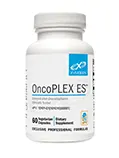SPECIALTY PRODUCTS
The following labs and test kits are available through our clinic:
This profile measures the levels of cortisol and DHEA and provides an evaluation of how cortisol levels differ throughout the day. Cortisol levels typically peak shortly after rising and are at their lowest after the onset of sleep. Cortisol is involved in many important functions in your body, including the metabolism and utilization of proteins, carbohydrates and fats, your body's response to physiological or psychological stress, and the control of inflammation and proper blood sugar levels. Cortisol also helps maintain proper blood pressure, normal nerve and brain activity and normal heart and immune function. DHEA also plays a role in the metabolism of protein, carbohydrates and fats, and works with cortisol to help maintain proper blood sugar levels. DHEA helps regulate body weight, blood pressure and immune function, and is used by the body to make the hormones, testosterone and estradiol. Too much or too little of cortisol or DHEA can lead to illness, and it is important that these two hormones be in balance with each other.
This test measures the IgE antibody levels in the blood to detect an allergy to various common foods. Food allergens are prevalent in the United States. Allergy symptoms vary depending on the individual, ranging from mild to severe reactions. Most food-related symptoms occur within two hours of ingestion; however, they frequently begin within minutes. In addition, the response can be delayed by four to six hours or even longer in some rare cases. Food allergies are primarily broken into two categories, either IgE-mediated or non-IgE-mediated.
- IgE-mediated food allergies are activated by an immune system response that produces IgE antibodies to combat harmful substances. This type of reaction happens within minutes or hours of ingesting certain foods. IgE-mediated allergies are associated with skin rashes and respiratory and gastrointestinal problems.
- Non-IgE-mediated food allergies often referred to as food sensitivity, are triggered by other immune system factors unrelated to IgE antibodies. Unlike, IgE-mediated allergic reactions, these types of reactions do not occur directly after the ingestion of the food and usually cause gastrointestinal-related symptoms such as vomiting, bloating, and diarrhea.
Consuming certain foods may trigger an individual's immune system response. This response is because the body views certain substances as harmful and produces IgE antibodies to combat these invaders. Unfortunately, these antibodies cause histamine to be released, resulting in the symptoms associated with an allergic reaction.
This at-home lab test measures certain environmental elements. Chronic exposure to the heavy metals measured by this test can lead to poor health outcomes over time. The test also measures 2 trace minerals that are involved in many important processes in the body. These heavy metals are Arsenic, Mercury, Cadmium, Bromine, Selenium, Iodine, and Creatinine.
Micronutrient test provides the most comprehensive nutritional analysis available by measuring functional deficiencies at the cellular level. It is an assessment of how well the body utilizes 31 vitamins, minerals, amino/fatty acids, antioxidants, and metabolites, while conveying the body’s need for these micronutrients that enable the body to produce enzymes, hormones, and other substances essential for proper growth, development, and good health. Repletion recommendations are made based on need.
A test measuring the level of nagalase in the blood can be used to provide a measure of progress during treatment for cancer.Nagalase is a protein made by all cancer cells and viruses. This test is an ideal test for monitoring the effect of therapy of cancer and certain viral infections, including HIV & Autism.The test measures the activity of alpha-N-acetylgalactosaminidase (nagalase) in blood. Nagalase is an extracellular matrix-degrading enzyme that is (increased) secreted by cancerous cells in the process of tumor invasion. Nagalase causes immunodeficiency, preventing the immune system from doing its job. Without an active immune system, cancer and viral infections can grow unchecked.As an extremely sensitive marker for all cancers and certain viruses, Nagalase testing provides a powerful tool for early detection and treatment.
NMR LDL-P is a management tool used in appropriate risk-risk patients (type 2 diabetes mellitus, metabolic syndrome, CVD risk equivalent, statin-treated patients) to adjudicate response to treatment and guide adjustment in therapy. It is used in conjunction with other lipid measurements and clinical evaluation to aid in the management of lipoprotein disorders associated with cardiovascular disease.The NMR LipoProfile® test is an FDA-cleared blood test that directly measures the amount of LDL circulating in the body. “LDL” is low-density lipoprotein and has long been recognized as a major causal factor in the development of heart disease. Although the relationship of increased LDL particle number and plaque buildup in the artery wall has been known since the 1950s, a diagnostic test did not exist to measure LDL particle number (LDL-P). Historically, LDL cholesterol, or LDL-C, has been used to estimate LDL levels to assess a patient’s LDL-related cardiovascular risk and judge an individual’s response to LDL-lowering therapy. Today, a more reliable measure of LDL exists that directly counts the number of LDL particles a patient has using NMR technology.
The Stroke Risk Profile includes tests for inflammatory/clotting markers, insulin resistance markers, lipid markers, markers of kidney and liver function, red and white blood cell counts, platelet count and markers of anemia.
A thyroid panel is a group of tests that may be ordered together to help evaluate thyroid gland function and to help diagnose thyroid disorders. The tests included in a thyroid panel measure the level of thyroid hormones in the blood. A thyroid panel usually includes tests for: TSH (thyroid-stimulating hormone). The thyroid is a small butterfly-shaped organ that lies flat across the windpipe at the base of the neck that produces thyroid hormones, primarily T4 and some T3. These hormones travel throughout the body and regulate the metabolism by telling the cells in the body how fast to use energy and produce proteins. Lab tests can measure the amount of free T3 or free T4 or the total T3 or total T4 (bound plus unbound) in the blood.Both hyperthyroidism and hypothyroidism can also be caused by thyroiditis, thyroid cancer, and excessive or deficient production of TSH.
The Thyroid Panel with Reverse T3 Blood Test will help you determine whether you have any of the three “usual suspects” of an abnormal thyroid function: not enough production of T4, reduced conversion of T4 to T3, or greater production of inhibitory reverse T3.
The panel contains the following tests:
- Thyroid-Stimulating Hormone (TSH) - Evaluates overall thyroid function
- Total Thyroxine (T4) - Measures the total amount of T4 produced by the thyroid gland
- Free Thyroxine (T4) - Measures the amount of T4 available to the cells and tissues
Free Tri-iodothyronine (T3) - Measures the amount of T3 (the active form of the hormone) available to the cells and issues reverse T3 - Measures the non-functioning form of the active hormone T3This panel was designed to look at the three primary underlying causes of suboptimal thyroid function:
- Insufficient production of T4
- Decreased conversion of T4 to T3
- Increased production of inhibitory Reverse T3
There are more than 80 types of autoimmune diseases identified to date. Many of these disorders share similar symptoms, making it difficult for the health care practitioner to pinpoint the autoimmune condition. Diagnosing an autoimmune disease can be a difficult task. The initial symptoms of autoimmunity may include fatigue, aching tendons or muscles, inflammation and low fever. Many patients are not diagnosed until these innocuous symptoms manifest into clinical complaints and sub-optimal health. Approximately 30 million Americans suffer from autoimmune disease. Genetic susceptibility as well as environmental factors play a role in the development of autoimmunity. The experts at Eden For Health can help pin point the root cause your symptoms and treat them accordingly.
Get America Healthy
Join our community!
more than 1500 members




